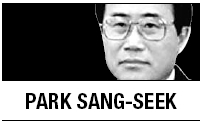Ordinary people in both the Muslim and non-Muslim world anticipated President Obama’s reaction toward the Arab revolutions fairly accurately, but they were a bit puzzled by Osama bin Laden’s reaction. It is ironic that their positions on the Arab revolutions were announced to the world back-to-back.

According to bin Laden’s posthumously broadcast message, he fully supported the Arab people’s revolts against their autocrats. Advocates of Muslim theocracy maintain that Islamic civilization is incompatible with Western civilization and therefore reject Western democracy, which is the product of Western civilization. Many of them become radical Islamists who justify the use of any means to fight against Western values and democracy. On the other hand, there are “secularized” Muslims who believe in the compatibility between them.
If predominantly Muslim states are classified according to their political systems, there are Muslim theocracies (e.g. Saudi Arabia), secular dictatorships (e.g. Syria) and secular democracies (e.g. Indonesia). In this context, the world is trying to find the true meaning of bin Laden’s message: Did he support a Muslim theocracy or a secularized Muslim democracy?
The United States and the Muslim world are also faced with a dilemma: For the U.S., the question is whether the crisis in the Arab world is a golden opportunity for the spread of Western democracy and for the Arab world, or whether it is a chance for the spread of Islamic theocracy or Islamic democracy.
Obama outlined the U.S. approach to the Arab revolutions at the State Department last week. His strategy is based on his strategy on the Middle East he enunciated in Cairo two years ago. Its key elements are the following: Reject extremism in any form (Islamic fundamentalism as well as dictatorship); promote Western democracy; support universal rights (freedom of speech, assembly or religion, plus gender equality and the right to choose one’s own leaders); and use a kind of Marshall plan (based on the belief that the success of democracy depends on economic growth and broad-based prosperity).
Here lies a huge chasm between the American crusade for universal values and democracy and the Islamic fundamentalist crusade for Islamic values. First, those “universal” values advocated by the U.S. are not yet universal.
For instance, freedom of speech, freedom of religion and separation of religion and the state are not accepted by Islamic fundamentalism. They may become universally accepted values in the future, but not in the contemporary period. Therefore, as long as the U.S. crusades for those universal rights on behalf of the whole world, it is bound to face strong resistance from the non-Western world. In his Cairo speech Obama seemed to favor examplarism; now he proselytizes evangelism.
The uniqueness of American foreign policy is that regardless of which party is in power, the U.S. pledges to seek three foreign policy goals: security, interests and universal (democratic) values. However, these three goals often conflict with one another and consequently the U.S. has been criticized by third world leaders for hypocrisy.
In the contemporary era no country can intervene in the political turmoil of other countries for the protection of democratic values; even humanitarian intervention is disputed. Being aware of this reality, the U.S. opted for multilateral intervention in Libya for humanitarian purposes, while resorting to economic aid and soft power in other situations. Humanitarian values such as life, health, prosperity, liberty and justice enumerated by Lawrence Harrison can be accepted universally.
Obama announced a Marshall plan for economic development and equitable enjoyment of wealth in the Arab world. The Marshall plan is based on the theory that democracy can survive and prosper in a country when and if the country economically prospers. This economic prerequisites theory is accepted in the scholarly community.
However, economic development is a necessary but not sufficient condition. Civic culture (public self-expression, mutual trust, tolerance, liberty and participation in governance, etc.) should be promoted by economic development. Building civic culture will be more difficult than expanding economic growth. It should also be noted that in the non-Western world, particularly the Islamic world, nurturing civic culture will be a long and painstaking process.
In the process, democracy-building can be disrupted and even destroyed by political turmoil, and is replaced by another dictatorship or Islamic theocracy. Obama correctly anticipated it when he said that “In some places change will be swift; in others, gradual … And as we’ve already seen, calls for change may give way, in some cases, to fierce contests for power.”
Another problem in relation to the U.S. strategy toward the Arab revolutions is the Arab-Israeli conflict. In his speech Obama tried to depict the U.S. as an impartial peacemaker by demanding Israel live up to the U.N. Security Council Resolution 242, which calls for the withdrawal of Israeli forces from territories occupied in the Arab-Israeli war in 1967. On the other hand, he criticized the Arab dictators for using Israel as a scapegoat.
But there is no guarantee that secular democratic regimes which may emerge as a result of the Arab revolutions will become pro-American unless the U.S. takes a neutral position in the conflict. In such a case, it will be difficult for the U.S. to defend its three-fold foreign policy doctrine. A democratized Arab world will also face a dilemma between democratic values and the anti-Jewish position on the one hand and between democratic and Islamic values.
By Park Sang-seek
Park Sang-seek is a professor at the Graduate Institute of Peace Studies, Kyung Hee University. ― Ed.




![[Herald Interview] 'Trump will use tariffs as first line of defense for American manufacturing'](http://res.heraldm.com/phpwas/restmb_idxmake.php?idx=644&simg=/content/image/2024/11/26/20241126050017_0.jpg)

![[Health and care] Getting cancer young: Why cancer isn’t just an older person’s battle](http://res.heraldm.com/phpwas/restmb_idxmake.php?idx=644&simg=/content/image/2024/11/26/20241126050043_0.jpg)

